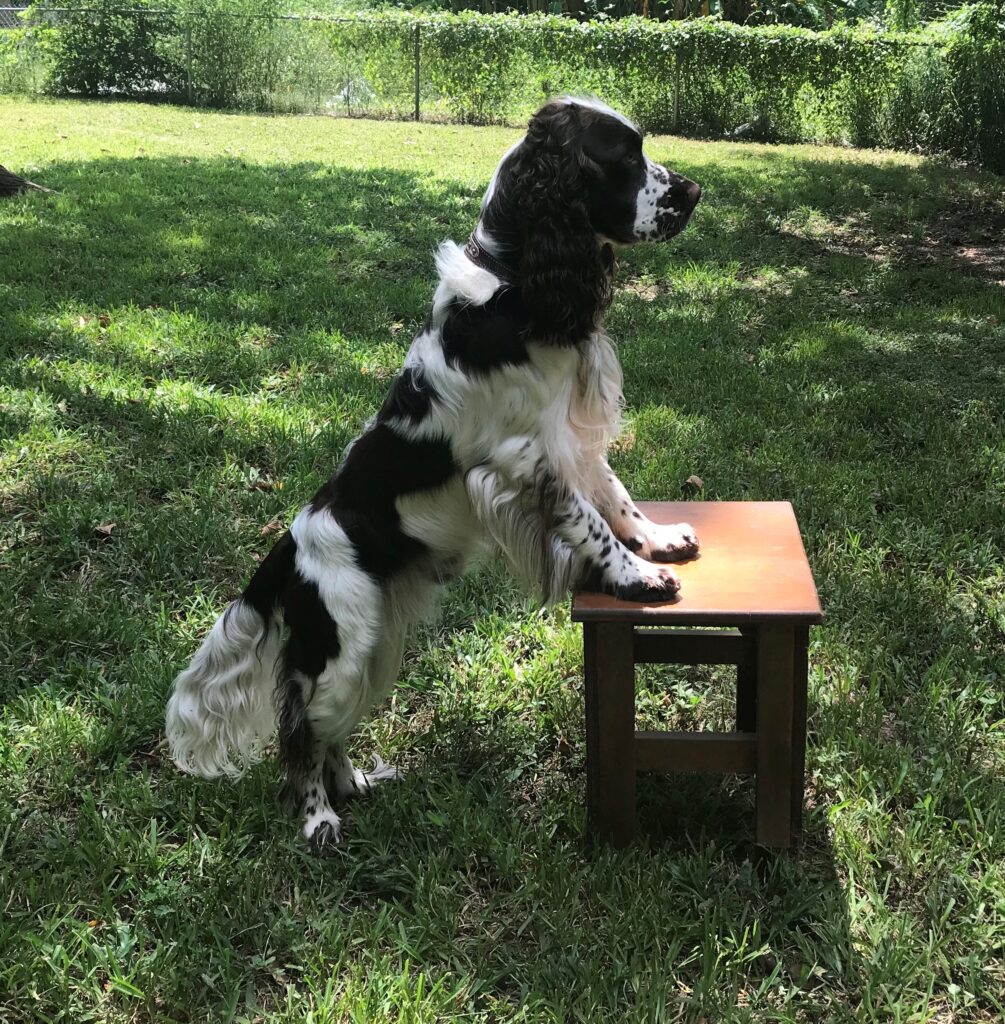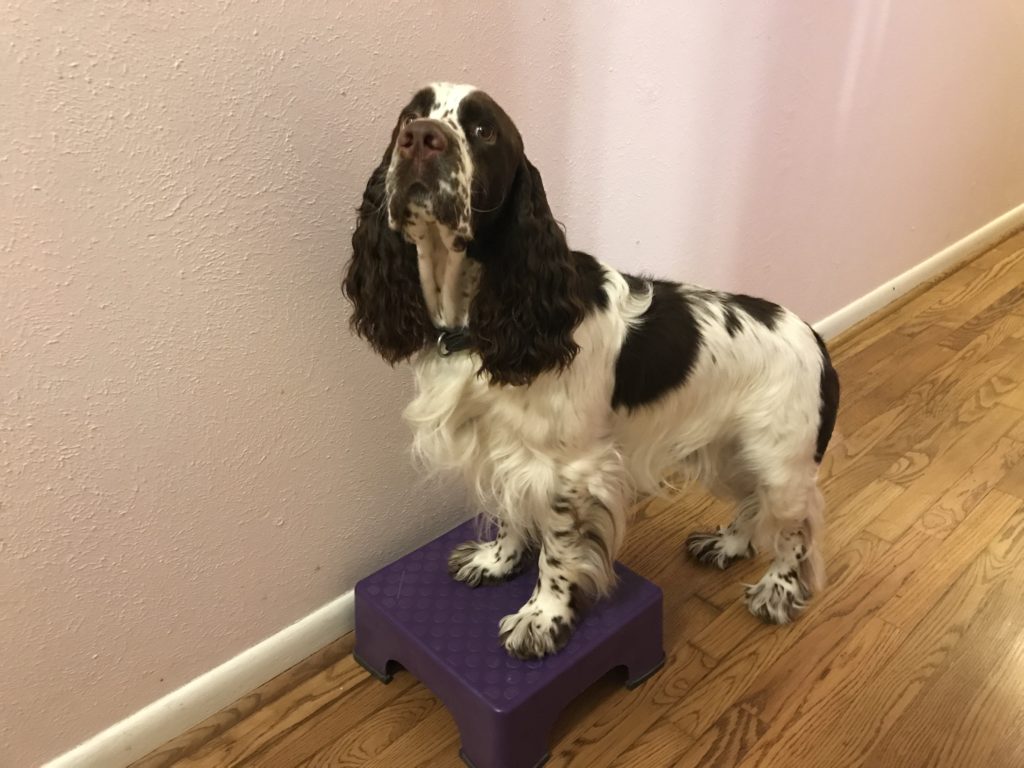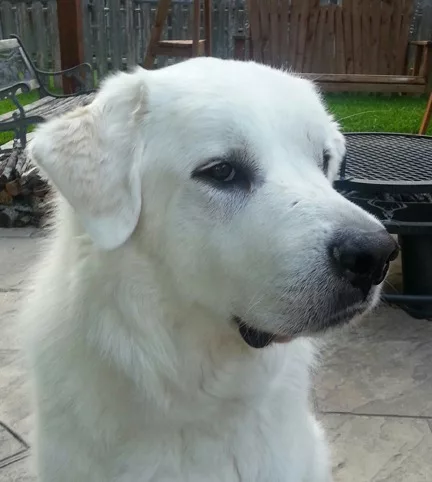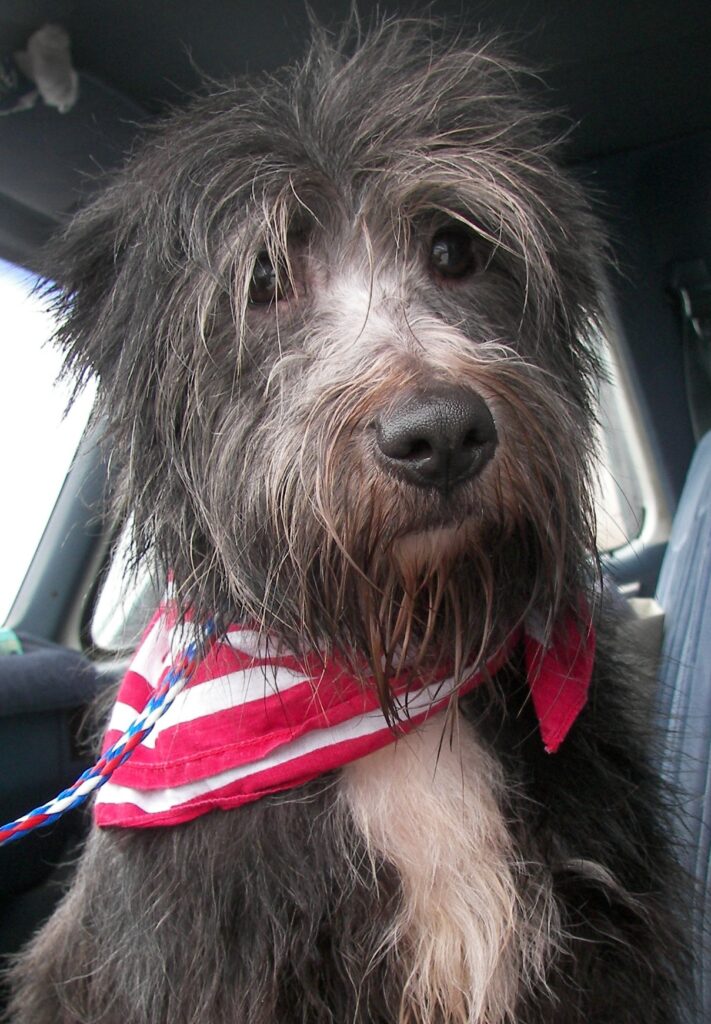How to Use Cues in Dog Training

Verbal cues have a different meaning to dogs than to humans. Humans tend to think dogs are actually understanding the language, but dogs are simply listening for an indication of what they can do to make things work, to get things they want. “When I see my human pick up a leash, I know fun […]
Dogs and Visitors
Training Tip: Don’t put dogs in situations they don’t have the tools to handle. Human behavior challenges Why is it usually a bad idea to take a 2-year-old human toddler to a symphony performance? Toddlers don’t have the tools to get through a performance that lasts over an hour. What do they need? As a […]
FOODS TOXIC TO DOGS
The days of a huge difference between “human foods” and “dog foods” are over. We now understand that our dogs (and cats) are healthiest when they routinely eat high-quality, whole foods like we do. Many high-fat, high-salt foods are not good for dogs or cats any more than they are for humans. But some foods […]
How Do Dogs Learn?

Your dog is an individual but he or she learns in the same two ways as any other animal. Dogs learn through association and consequences. Association is how animals learn reflexive, involuntary responses; things they do automatically, without thinking. Emotional responses like fear and excited, joyful but over-aroused anticipation are the easiest to notice. Dog […]
How to Identify a Qualified Dog Trainer
Why is it so hard to identify a qualified dog trainer? The field of animal training can be confusing. For example, a jumble of letters often follows a dog trainer’s name. Some titles mean little or nothing. Others indicate the trainer had to study behavior science and meet high-level criteria. Most importantly, the industry is […]
Walden Two: Lessons in Choice-based Training
Skinner on “Behavioral Processes” “You can’t foresee all future circumstances, and you can’t specify adequate future conduct. You don’t know what will be required. Instead you have to set up certain behavioral processes which will lead the individual to design his own ‘good’ conduct when the time comes. We call that sort of thing ‘self-control.’” […]
Virtual Dog Training Classes: You’ll love them!
Thank goodness for Zoom! Because of the COVID-19 pandemic, we entered a world of telecommunication previously familiar only to astronauts, researchers stationed in Antarctica, and characters in science fiction movies. How would we have functioned throughout the pandemic without it? Because of safety restrictions during the pandemic, dog trainers had to cancel group classes and […]
Who’s a “Good Dog”? – Foundation Skills

What is a “good dog”? People tend to categorize dogs as “good dogs” when they are confident, friendly, and relaxed. Working dogs and performance dogs need these qualities so fear and anxiety don’t distract them from their jobs. People tend to expect family pets to be safe and reliable around children, which requires a relaxed, […]
Feeding Your Dog: Help him Thrive & Learn
Controlling resources can help you make household rules clear for your dogs. Control the resources and you don’t have to control the dog. The easiest way to start training is to provide things a dog wants to reinforce the choices he makes. Feeding your dog involves providing an important resource for your dog; one that […]
Life Skills: Teaching dogs about day-to-day life

Life should be fun! Training your dog is more than Sit and Stay. Prepare your dog for the things he’s likely to encounter in his life. Make sure he knows what to do in those situations and his life and yours will be predictable and fun. Life skills are the behavioral building blocks that allow […]

